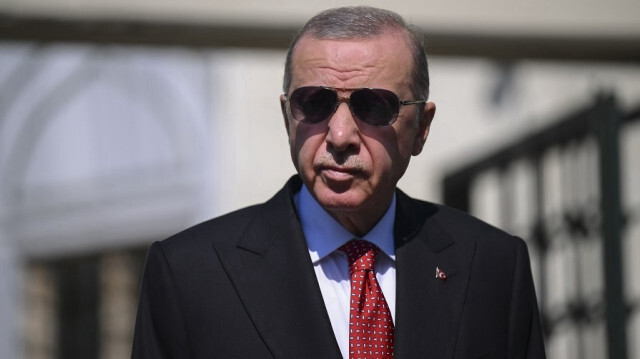
'Türkiye is striving to become permanent member, but so far we haven't achieved any results,' says Recep Tayyip Erdogan
President Recep Tayyip Erdogan on Friday voiced Türkiye's wish to secure a permanent seat on the UN Security Council."Türkiye is striving to become a permanent member, but so far we haven't achieved any results," he told the press after prayers in Istanbul, fresh from attending this week's annual UN General Assembly meetings in New York City.
Erdogan said the current permanent members have shown no intention of supporting Türkiye's bid.
Erdogan reiterated his call for reforming the UN, decrying how the current system allows these five members to control decisions, sidelining the 10 non-permanent members, an argument he has frequently made with the slogan, “The world is bigger than five.”
The Security Council is currently made up of 15 members: Five permanent – China, France, Russia, Britain, and the US – and 10 non-permanent elected for two-year terms by the General Assembly. Only the five permanent members have veto power.
Asked about his meeting in New York with Greek Prime Minister Kyriakos Mitsotakis, Erdogan said they discussed plans to hold a High-Level Cooperation Council meeting in early 2025 and addressed disputes in Aegean Sea. Erdogan said Mitsotakis pledged to take steps to solve these problems.
The council aims to address various issues of Turkish-Greek relations at a high level and lay down an institutional foundation for Turkish-Greek relations. It has so far met five times, most recently last year in Greece.
On his meeting on the UN sidelines with Armenian Prime Minister Nikol Pashinyan, Erdogan noted a positive approach by Pashinyan to resolve issues between Armenia and Azerbaijan, two neighbors in the southern Caucasus who have long been at odds. "These two countries will hopefully solve this problem by putting forward this approach,” said Erdogan.
Relations between the two have been tense since 1991, when the Armenian military occupied Karabakh – a territory internationally recognized as part of Azerbaijan – and seven adjacent regions.
Most of the territory was liberated by Azerbaijan during a 44-day war in the fall of 2020, which ended after a Russian-brokered peace agreement that opened the door to normalization and demarcation of their border.
In September 2023, Azerbaijan established full sovereignty in Karabakh following an anti-terrorist operation, after which separatist forces in the region surrendered.

